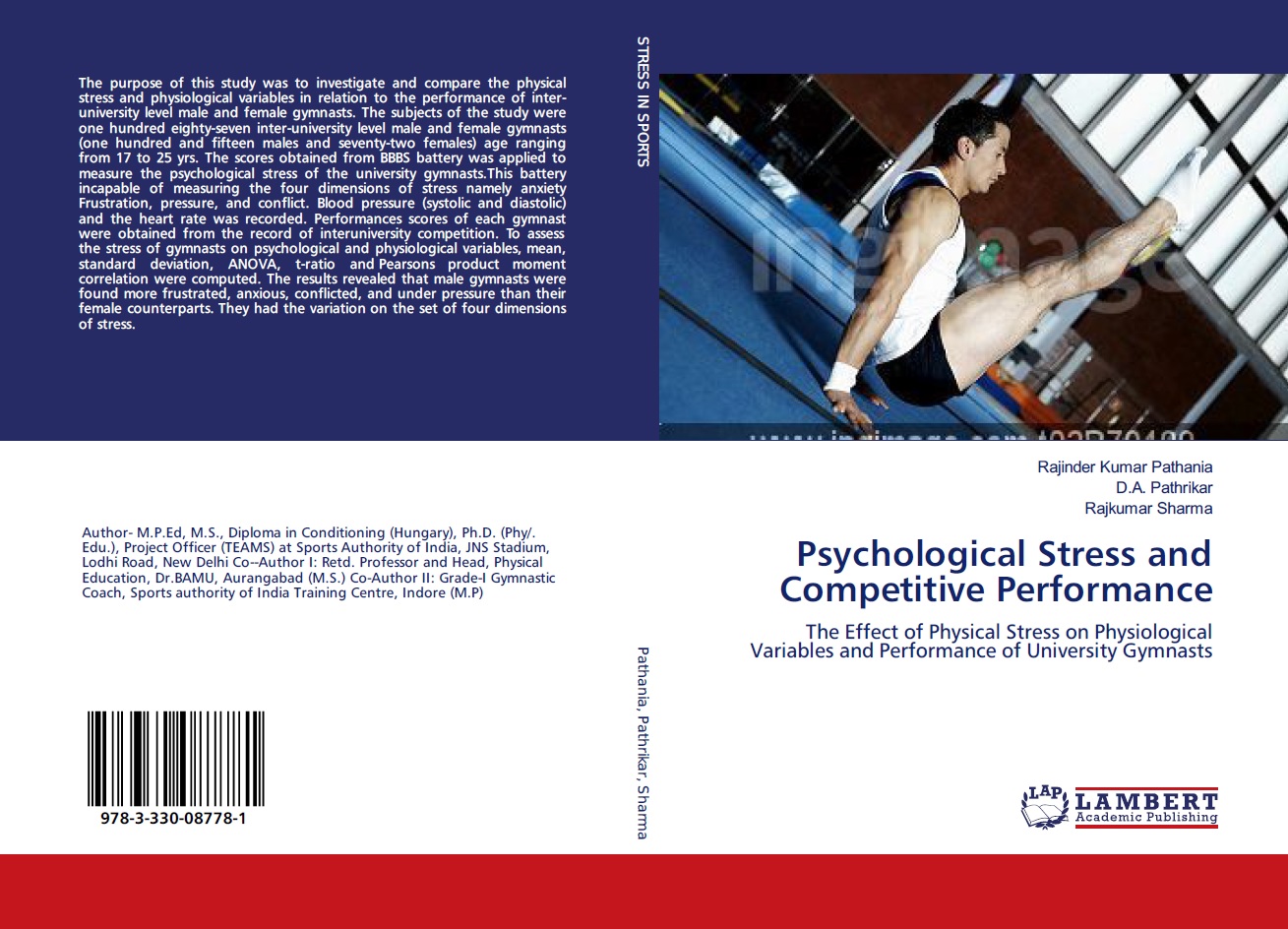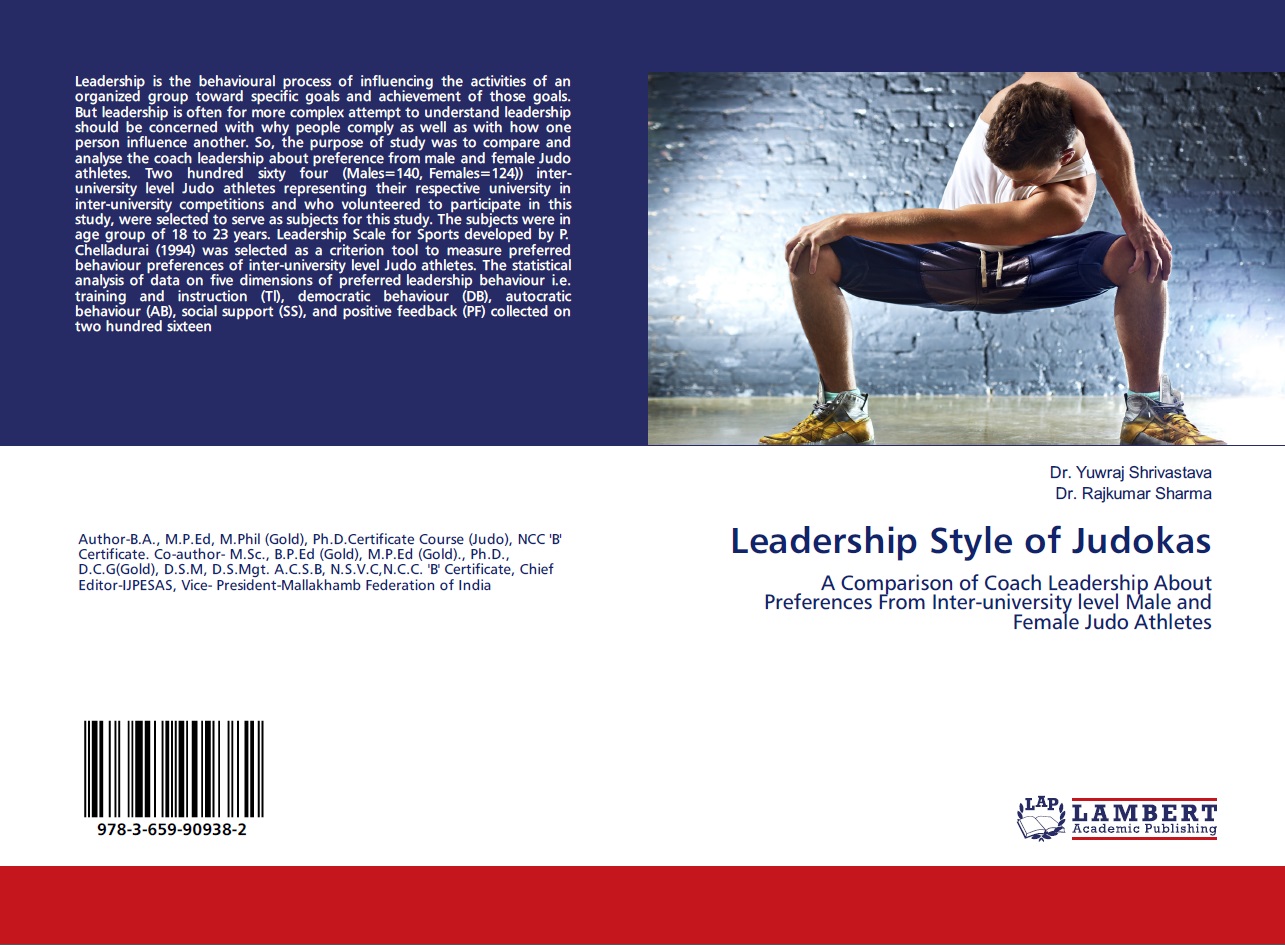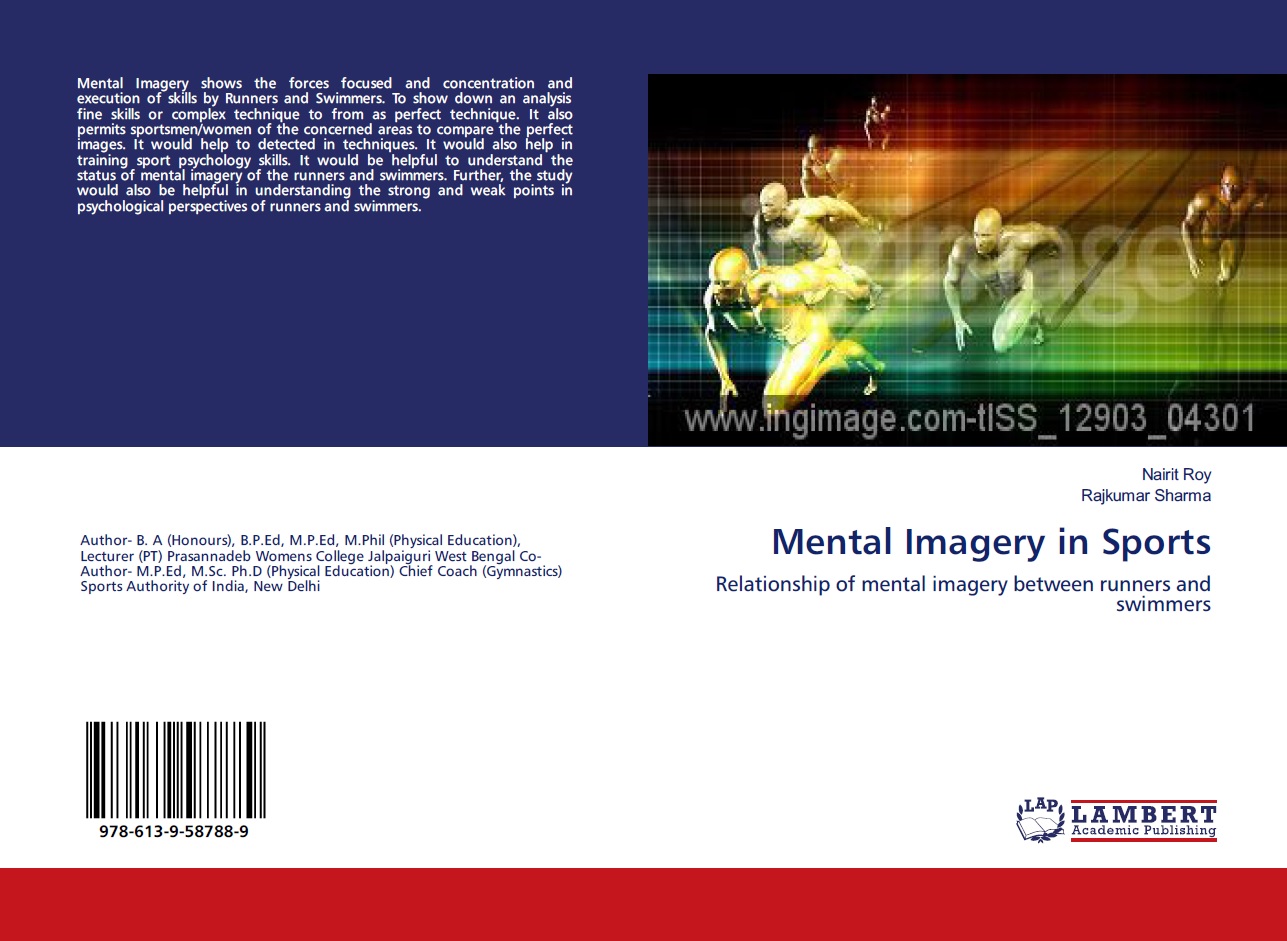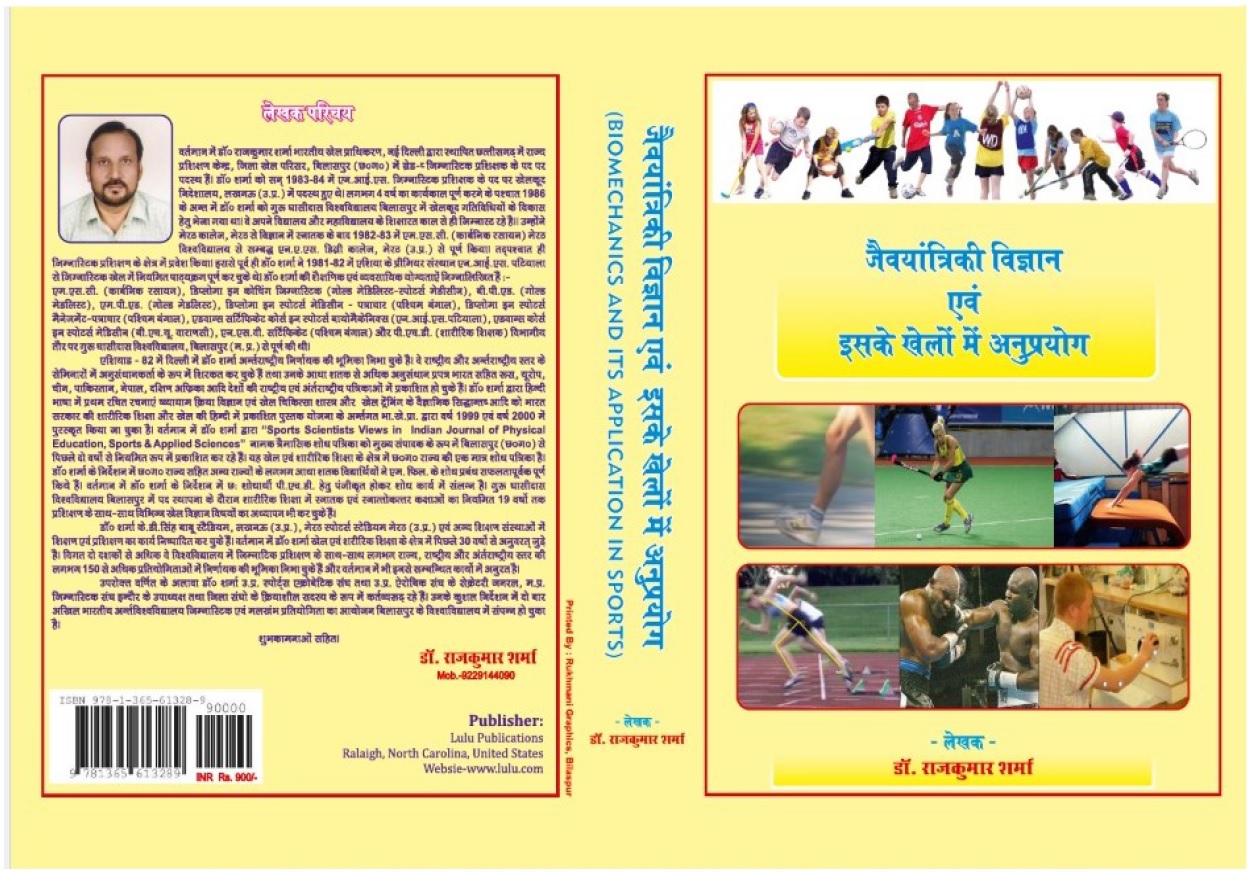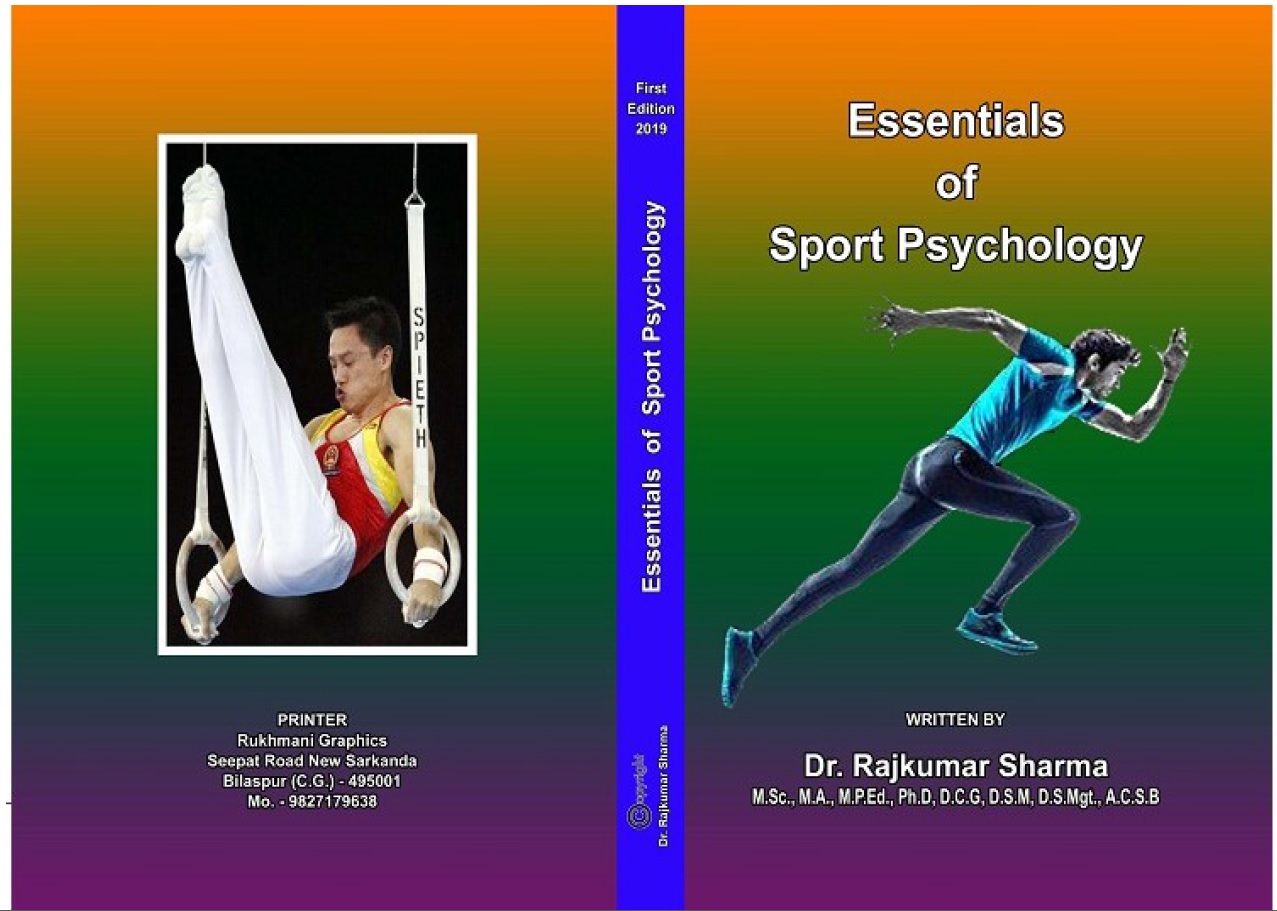| S.No. | Total View Count | Title of Manuscript | Page No | Download/ PDF |
|---|---|---|---|---|
| 1 | A REVIEW OFTHE EFFECT OF PSYCHOLOGICAL FACTORS ON SOCCER PLAYER’S PERFORMANCE Author: Nima Nakisa 1 and Mahboobeh Ghasemzadeh Rahbardar 2* | 86-101 |  11 11 |
Article info
doi no.: 05-2016-44975451,
DOI Link :: http://doi-ds.org/doilink/02.2021-67228445/IJPESAS/2021/JAN/V11/I1/A14
AFFILIATIONS:
1. Faculty of Physical Education and Sport Sciences, Kish International Campus, University of Tehran, Niyayesh St., Mirmohanna Blvd., Kish Island, Iran., Tel.: +98 9123092236 Email: nimanakisa1354@yahoo.com
2.*University of Medical Sciences, Mashhad, Mashhad University of Medical Sciences, Mashhad, Iran, E-mail Address- ghasemzadeh_mahboobeh@yahoo.com Mobile- +98 9151564700; Corresponding author
Soccer is a popular sport with a large number of players all over the world. Alongside, its considerable economic and social effects it also has a remarkable impact onhealth and recreation. It is necessary to find out the factors which influence soccer players’ performance. Most researches have assessed physical, physiological, and biomechanical factors but nowadays psychological factors such as confidence, motivation, goal setting, self-talk, relaxation, imagery, attention, and anxiety control are introduced as important items responsible for each individual soccer player as well as the team success. Thus, the leaders and coaches of soccer teams should increase their knowledge in this field and learn new methods to elevate the players’ and coaches’ psychological skills to be able to compete with professional components and reduce the negative impacts of stress, anxiety, depression, and exhaustion on their players. The main goal of the present study is to review how psychological factors affect the performance of soccer players.
Keywords: Soccer, Performance, confidence, motivation, goal, self-talk, relaxation, imagery, attention, anxiety.
References
1. Olmedilla A, Ruiz-Barquín R, Ponseti FJ, Robles-Palazón FJ, García-Mas A. Competitive psychological disposition and perception of performance in young female soccer players. Frontiers in psychology. 2019;10:1168.
2. Sarkar M, Fletcher D. Psychological resilience in sport performers: a review of stressors and protective factors. Journal of sports sciences. 2014;32(15):1419-34.
3. Gagné F. Transforming gifts into talents: The DMGT as a developmental theory. High ability studies. 2004;15(2):119-47.
4. Olmedilla A, García-Mas A, Ortega E. Psychological characteristics for sport performance in young players of football, rugby, and basketball. Acción Psicológica. 2017;14(1):7-16.
5. Vealey RS, Chase MA. Self-confidence in sport. 2008.
6. Benson M. Winning words: Classic quotes from the world of sports: Taylor Trade Publications; 2008.
7. Banduran A. Self-efficacy: the Exercise of Control. New York. NY: Worth Publishers. 1997.
8. Collins CG, Parker SK. Team capability beliefs over time: Distinguishing between team potency, team outcome efficacy, and team process efficacy. Journal of Occupational and Organizational Psychology. 2010;83(4):1003-23.
9. Edmonds WA, Tenenbaum G, Kamata A, Johnson MB. The role of collective efficacy in adventure racing teams. Small Group Research. 2009;40(2):163-80.
10. Hays K, Maynard I, Thomas O, Bawden M. Sources and types of confidence identified by world class sport performers. Journal of applied sport psychology. 2007;19(4):434-56.
11. Fransen K, Vanbeselaere N, De Cuyper B, Vande Broek G, Boen F. Perceived sources of team confidence in soccer and basketball. Medicine and science in sports and exercise. 2015;47(7):1470-84.
12. Fransen K, Haslam SA, Steffens NK, Vanbeselaere N, De Cuyper B, Boen F. Believing in “us”: Exploring leaders’ capacity to enhance team confidence and performance by building a sense of shared social identity. Journal of experimental psychology: applied. 2015;21(1):89.
13. Norman S, Luthans B, Luthans K. The proposed contagion effect of hopeful leaders on the resiliency of employees and organizations. Journal of Leadership & Organizational Studies. 2005;12(2):55-64.
14. Avey JB, Avolio BJ, Luthans F. Experimentally analyzing the impact of leader positivity on follower positivity and performance. The Leadership Quarterly. 2011;22(2):282-94.
15. Fransen K, Steffens NK, Haslam SA, Vanbeselaere N, Vande Broek G, Boen F. We will be champions: Leaders' confidence in ‘us’ inspires team members' team confidence and performance. Scandinavian journal of medicine & science in sports. 2016;26(12):1455-69.
16. Cox RH. Sport psychology: Concepts and applications: McGraw-hill; 1998.
17. Weinberg RS, Gould D. Foundations of sport and exercise psychology: Human Kinetics; 2014.
18. Forsman H, Gråstén A, Blomqvist M, Davids K, Liukkonen J, Konttinen N. Development of perceived competence, tactical skills, motivation, technical skills, and speed and agility in young soccer players. Journal of sports sciences. 2016;34(14):1311-8.
19. Pelletier LG, Sarrazin P. Measurement issues in self-determination theory and sport. 2007.
20. Pelletier LG, Rocchi MA, Vallerand RJ, Deci EL, Ryan RM. Validation of the revised sport motivation scale (SMS-II). Psychology of sport and exercise. 2013;14(3):329-41.
21. de Oliveira LP, do Nascimento Junior JRA, Vissoci JRN, Ferreira L, da Silva PN, Vieira JLL. Self-determined motivation and coping strategies in football players: A study with players at different stages of athletic development. Revista de Psicologia del Deporte. 2016;25(2):261-9.
22. Abdullah MR, Musa RM, Maliki ABHMB, Kosni NA, Suppiah PK. Role of psychological factors on the performance of elite soccer players. Journal of Physical Education and Sport. 2016;16(1):170.
23. Gucciardi DF. Mental toughness profiles and their relations with achievement goals and sport motivation in adolescent Australian footballers. Journal of sports sciences. 2010;28(6):615-25.
24. Curran T, Appleton PR, Hill AP, Hall HK. Passion and burnout in elite junior soccer players: The mediating role of self-determined motivation. Psychology of Sport and Exercise. 2011;12(6):655-61.
25. Souza Filho MJd, Albuquerque MR, Costa ITd, Malloy-Diniz LF, Costa VTd. Comparison of the motivation level of soccer players with high and low played time in matches under-20. Journal of Physical Education. 2018;29.
26. Oliveira LPd, Vissoci JRN, Nascimento Junior JRAd, Ferreira L, Vieira LF, Silva PNd, et al. The impact of perfectionism traits on motivation in high-performance soccer athletes. Revista Brasileira de Cineantropometria & Desempenho Humano. 2015;17(5):601-11.
27. Borges P, Oliveira Silva D, Ciqueira E, Rinaldi I, Rinaldi W, Vieira L. Motivation and tactical performance in young soccer players: an analysis from the theory of selfdetermination. Cinergis. 2015;16(2):120-4.
28. Grushko AI, Haidamashko IV, Ibragimov RR, Kornienko DS, Korobeynikova EY, Leonov SV, et al. Does the motivation, anxiety and imagery skills contributes to football (soccer) experience. Procedia-Social and Behavioral Sciences. 2016;233:181-5.
29. Marcora SM, Staiano W. The limit to exercise tolerance in humans: mind over muscle? European journal of applied physiology. 2010;109(4):763-70.
30. McCormick A, Meijen C, Marcora S. Psychological determinants of whole-body endurance performance. Sports medicine. 2015;45(7):997-1015.
31. Barte J, Nieuwenhuys A, Geurts S, Kompier M. Effects of fatigue on soccer performance and the role of task Motivation. IN SOCCER. 2017:39.
32. Barte JC, Nieuwenhuys A, Geurts SA, Kompier MA. Motivation counteracts fatigue-induced performance decrements in soccer passing performance. Journal of sports sciences. 2019;37(10):1189-96.
33. Garcia-Mas A, Palou P, Gili M, Ponseti X, Borras PA, Vidal J, et al. Commitment, enjoyment and motivation in young soccer competitive players. The Spanish journal of psychology. 2010;13(2):609.
34. SHOJAEI M, KHABIRI M, HAJI GA. Motivational traits of Iranian elite soccer players. 2007.
35. Peden A. Cognitive techniques to manage performance anxiety in tennis. ITF Coach Sport Sci Rev. 2007;43:12-3.
36. Tamorri S. Neuroscience and sport: Sport psychology, an athlete? s mental processes. Barcelona: Paidotribo. 2004.
37. Wilson MR, Wood G, Vine SJ. Anxiety, attentional control, and performance impairment in penalty kicks. Journal of Sport and Exercise Psychology. 2009;31(6):761-75.
38. Horikawa M, Yagi A. The relationships among trait anxiety, state anxiety and the goal performance of penalty shoot-out by university soccer players. PloS one. 2012;7(4):e35727.
39. Gould D, Petlichkoff L, Weinberg RS. Antecedents of, temporal changes in, and relationships between CSAI-2 subcomponents. Journal of Sport and Exercise Psychology. 1984;6(3):289-304.
40. Ahsan M, Ruru KT, Kumar A. A study of competitive sport anxiety in young soccer players. IOSR Journal of Sports and Physical Education. 2014;1(4):30-1.
41. Kang H, Jang S. Effects of Competition Anxiety on Self-Confidence in Soccer Players. Journal of Men's Health. 2018;14(3):e62-e8.
42. Koruc Z, Arsan N, Kagan S, Kocaeksi S. Competitive anxiety and concentration levels of football players. J Sports Sci Med. 2007;6(10):155-6.
43. Erceg M, Mili? M, Živkovi? V. Pre-competitive anxiety in soccer players. Research in Physical Education, Sport and Health. 2013;2(1):3-8.
44. Hayes SC, Rosenfarb I, Wulfert E, Munt ED, Korn Z, Zettle RD. Self?reinforcement effects: An artifact of social standard setting? Journal of applied behavior analysis. 1985;18(3):201-14.
45. Sellars C, Crisfield P. Mental skills: An introduction for sports coaches: National Coaching Foundation; 1996.
46. Maitland A, Gervis M. Goal-setting in youth football. Are coaches missing an opportunity? Physical Education and Sport Pedagogy. 2010;15(4):323-43.
47. Locke EA, Shaw KN, Saari LM, Latham GP. Goal setting and task performance: 1969–1980. Psychological bulletin. 1981;90(1):125.
48. Brobst B, Ward P. Effects of public posting, goal setting, and oral feedback on the skills of female soccer players. Journal of Applied Behavior Analysis. 2002;35(3):247-57.
49. Burton D, Weiss C. The fundamental goal concept: the path to process and performance success. 2008.
50. Bueno J, Weinberg RS, Fernández-Castro J, Capdevila L. Emotional and motivational mechanisms mediating the influence of goal setting on endurance athletes’ performance. Psychology of Sport and Exercise. 2008;9(6):786-99.
51. Vealey R. Mental skills training in sport. Handbook of Sport Psychology, 3rd ed(287-309) Hoboken, NJ: John Wiley & Sons. 2007.
52. Burton D, Raedeke TD. Sport psychology for coaches: Human Kinetics; 2008.
53. Barnicle SP, Burton D. Enhancing collegiate women’s soccer psychosocial and performance outcomes by promoting intrinsic sources of sport enjoyment. Journal of Sports Science & Medicine. 2016;15(4):678.
54. Edwards C, Tod D, McGuigan M. Self-talk influences vertical jump performance and kinematics in male rugby union players. Journal of sports sciences. 2008;26(13):1459-65.
55. Johnson JJ, Hrycaiko DW, Johnson GV, Halas JM. Self-talk and female youth soccer performance. The Sport Psychologist. 2004;18(1):44-59.
56. Daftari O, SOFIAN OFM, Akbari A. Effects of self-talk on football players performance in official competitions. 2010.
57. Daftari M, SOFIAN OFM, Sadeghi H, Akbari A. A DESCRIPTION OF SELF-TALK _ NARRATIVE SELF-TALK TO EXAMINE THE VALUE OF SELF-TALK IN SOCCER PLAYER. 2011.
58. Papaioannou A, Theodorakis Y, Ballon F, Auwelle YV. Combined effect of goal setting and self-talk in performance of a soccer-shooting task. Perceptual and Motor Skills. 2004;98(1):89-99.
59. Gholamreza L, Aziz R, Jafarzadeh M. Positive and negative motivational self-talk affect learning of soccer kick in novice players, mediated by anxiety. International Journal of Humanities and Cultural Studies (IJHCS)? ISSN 2356-5926. 2016;1(1):1946-53.
60. Papadelis C, Kourtidou-Papadeli C, Bamidis P, Albani M. Effects of imagery training on cognitive performance and use of physiological measures as an assessment tool of mental effort. Brain and cognition. 2007;64(1):74-85.
61. Wei G, Luo J. Sport expert's motor imagery: functional imaging of professional motor skills and simple motor skills. Brain research. 2010;1341:52-62.
62. Zandi HG, Masomi H. The effects of imagery in soccer players perceptions of anxiety during penalty kick. British Journal of Sports Medicine. 2010;44(Suppl 1):i61-i.
63. Veraksa A, Gorovaya A. Imagery training efficacy among novice soccer players. Procedia-Social and Behavioral Sciences. 2012;33:338-42.
64. Seif-Barghi T, Kordi R, Memari A-H, Mansournia M-A, Jalali-Ghomi M. The effect of an ecological imagery program on soccer performance of elite players. Asian Journal of Sports Medicine. 2012;3(2):81.
65. Adegbesan O. Analysis of imagery use as predictors of football players’ sport confidence. World Journal of Sport Sciences. 2010;3(1):53-8.
66. TA?KIRAN Y. The Effect of the Mental Imagery Training on Anxiety in Soccer Players. Turkiye Klinikleri Spor Bilimleri. 2011;3(1).
67. Kolayi? H, Çelik N. Examination of motivation, anxiety and imagery levels of footballers from different leagues. Revista de psicología del deporte. 2017;26(3):23-7.
68. Ribeiro J, Madeira J, Dias C, Stewart LR, Corte-Real N, Fonseca A. The use of imagery by Portuguese soccer goalkeepers. Journal of Imagery Research in Sport and Physical Activity. 2015;10(1):9-17.
69. Martens R. Coaches guide to sport psychology: A publication for the American Coaching Effectiveness Program: Level 2 sport science curriculum: Human Kinetics Books; 1987.
70. Morgan WP. The mind of the marathoner. Psycology Today. 1978;11:38-49.
71. Abernethy B. Attention. In, RN Singer, M. Murphey, & LK Tennant (Eds.) Handbook of research on sport psychology (pp. 127-170). New York: Macmillan; 1993.
72. Ziegler SG. The effects of attentional shift training on the execution of soccer skills: A preliminary investigation. Journal of Applied Behavior Analysis. 1994;27(3):545-52.
73. Papanikolaou Z. Attention in young soccer players: the development of an attentional focus training program. Journal of Life Sciences. 2011;3(1):1-12.
74. Wulf G, McNevin N, Shea CH. The automaticity of complex motor skill learning as a function of attentional focus. The Quarterly Journal of Experimental Psychology Section A. 2001;54(4):1143-54.
75. Winkelman NC, Clark KP, Ryan LJ. Experience level influences the effect of attentional focus on sprint performance. Human movement science. 2017;52:84-95.
76. Howland JM. Mental skills training for coaches to help athletes focus their attention, manage arousal, and improve performance in sport. Journal of Education. 2007;187(1):49-66.
77. Newmark TS, Bogacki DF. The use of relaxation, hypnosis, and imagery in sport psychiatry. Clinics in sports medicine. 2005;24(4):973-7.
78. Dayapo?lu N, Tan M. Evaluation of the effect of progressive relaxation exercises on fatigue and sleep quality in patients with multiple sclerosis. The Journal of Alternative and Complementary Medicine. 2012;18(10):983-7.
79. Bali A. Psychological factors affecting sports performance. International Journal of Physical Education, Sports and Health. 2015;1(6):92-5.
80. Hashim HA, Hanafi H, Yusof A. The effects of progressive muscle relaxation and autogenic relaxation on young soccer players’ mood states. Asian journal of sports medicine. 2011;2(2):99.
 admin@sportscientistsviews.com
admin@sportscientistsviews.com

